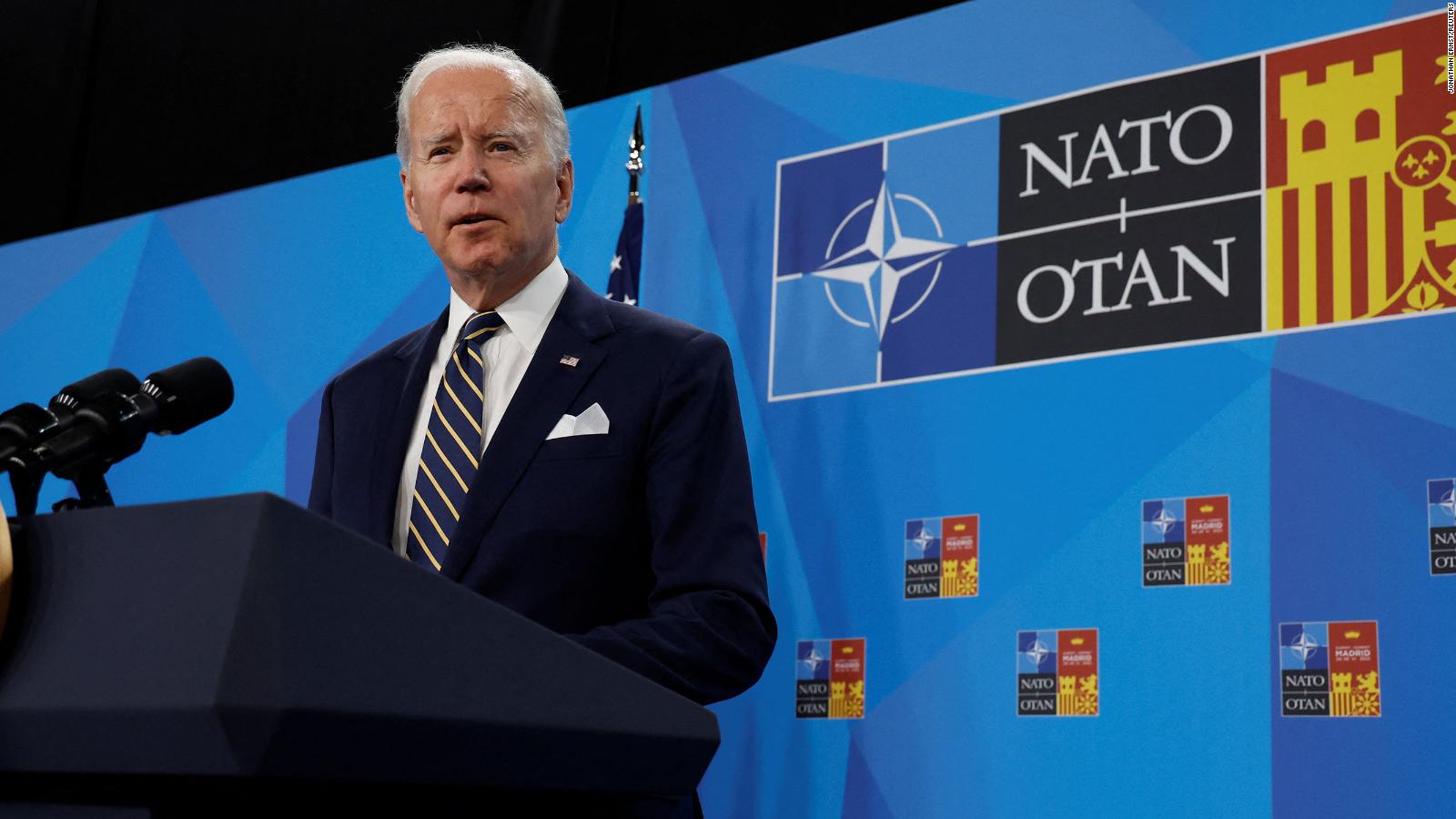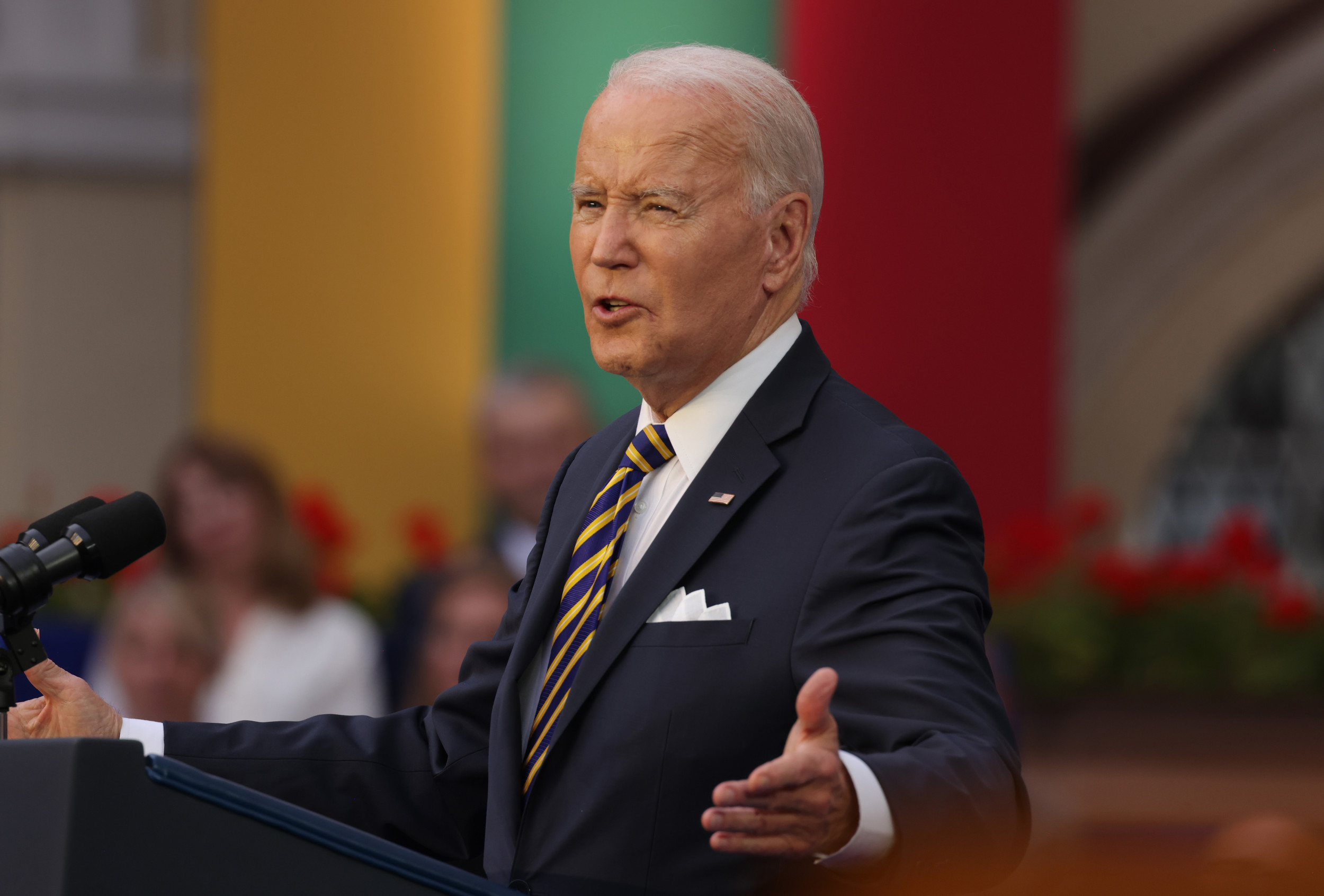Biden’s Commitment to NATO

Biden nato –
President Biden has reaffirmed the United States’ commitment to the North Atlantic Treaty Organization (NATO), a military alliance of 30 countries from North America and Europe. This commitment is significant because it signals a return to a more traditional U.S. foreign policy approach, which emphasizes cooperation with allies and collective security.
Biden’s NATO allies have been vocal in their support of Ukraine, and George Stephanopoulos has been a key figure in covering the conflict. Stephanopoulos has interviewed key players on both sides of the conflict, and his reporting has helped to shed light on the complex issues at stake.
As the conflict continues, NATO’s role will be critical, and Stephanopoulos’s reporting will continue to be an important source of information for policymakers and the public alike.
Biden has taken several actions to demonstrate his commitment to NATO. He has increased the number of U.S. troops stationed in Europe, and he has pledged to spend more money on defense. He has also met with NATO leaders to discuss ways to strengthen the alliance.
Biden’s unwavering commitment to NATO has been a cornerstone of his foreign policy, strengthening the alliance and deterring potential adversaries. Amidst this geopolitical landscape, prominent figures like George Stephanopoulos have provided incisive analysis and commentary on the alliance’s significance. Stephanopoulos’s nuanced understanding of international relations has shed light on the complexities of Biden’s NATO policy, emphasizing its importance in maintaining global stability.
Biden’s commitment to NATO is likely to have a positive impact on the future of the alliance. It will help to reassure NATO members that the United States is committed to their security, and it will make it more difficult for Russia to intimidate or coerce NATO members.
Examples of Biden’s Actions Demonstrating Commitment to NATO
- Increased the number of U.S. troops stationed in Europe.
- Pledged to spend more money on defense.
- Met with NATO leaders to discuss ways to strengthen the alliance.
Potential Impact of Biden’s Commitment on the Future of NATO
- Reassure NATO members that the United States is committed to their security.
- Make it more difficult for Russia to intimidate or coerce NATO members.
NATO’s Role in the Russia-Ukraine Conflict: Biden Nato

Since the annexation of Crimea in 2014, NATO has been actively involved in the Russia-Ukraine conflict. The alliance has taken several key actions in response to the conflict, including providing military support to Ukraine, imposing sanctions on Russia, and increasing its presence in Eastern Europe.
NATO’s involvement in the conflict has been controversial. Some critics argue that the alliance has provoked Russia and made the conflict worse. Others argue that NATO’s intervention has been necessary to deter Russian aggression and support Ukraine’s sovereignty.
Challenges Facing NATO
NATO faces several challenges in navigating the Russia-Ukraine conflict. One challenge is the need to balance the need to support Ukraine with the need to avoid provoking Russia into a wider conflict. Another challenge is the need to maintain unity within the alliance, despite differences of opinion over how to respond to the conflict.
Opportunities for NATO, Biden nato
The Russia-Ukraine conflict also presents NATO with several opportunities. The conflict has helped to revitalize the alliance and demonstrate its relevance in the 21st century. The conflict has also provided NATO with an opportunity to strengthen its ties with Ukraine and other Eastern European countries.
NATO’s Future and Challenges
NATO’s future is uncertain, as it faces a number of challenges, including the rise of China, the ongoing conflict in Ukraine, and the increasing threats of terrorism and cyber warfare.
One of the biggest challenges facing NATO is the rise of China. China’s growing economic and military power is seen as a threat to NATO’s dominance in the world, and it is unclear how NATO will respond to this challenge.
NATO’s Expansion
NATO has been expanding its membership in recent years, and it is possible that it will continue to do so in the future. NATO’s expansion is seen as a way to strengthen the alliance and to deter potential threats from Russia and China.
However, NATO’s expansion is also seen as a provocation by Russia, and it could lead to further tensions between the two sides.
NATO’s Role in the Russia-Ukraine Conflict
NATO has been involved in the conflict in Ukraine since 2014, and it is unclear how it will continue to be involved in the future.
NATO has provided military assistance to Ukraine, and it has also imposed sanctions on Russia. However, NATO has been reluctant to send troops to Ukraine, and it is unclear whether it will do so in the future.
NATO’s Relevance and Effectiveness
NATO’s relevance and effectiveness are also being questioned in the face of new threats such as terrorism and cyber warfare.
NATO is seen as a relic of the Cold War, and it is unclear whether it is still relevant in the 21st century.
NATO is also facing challenges from within, as some member states are questioning the value of the alliance and whether they should continue to contribute to it.
